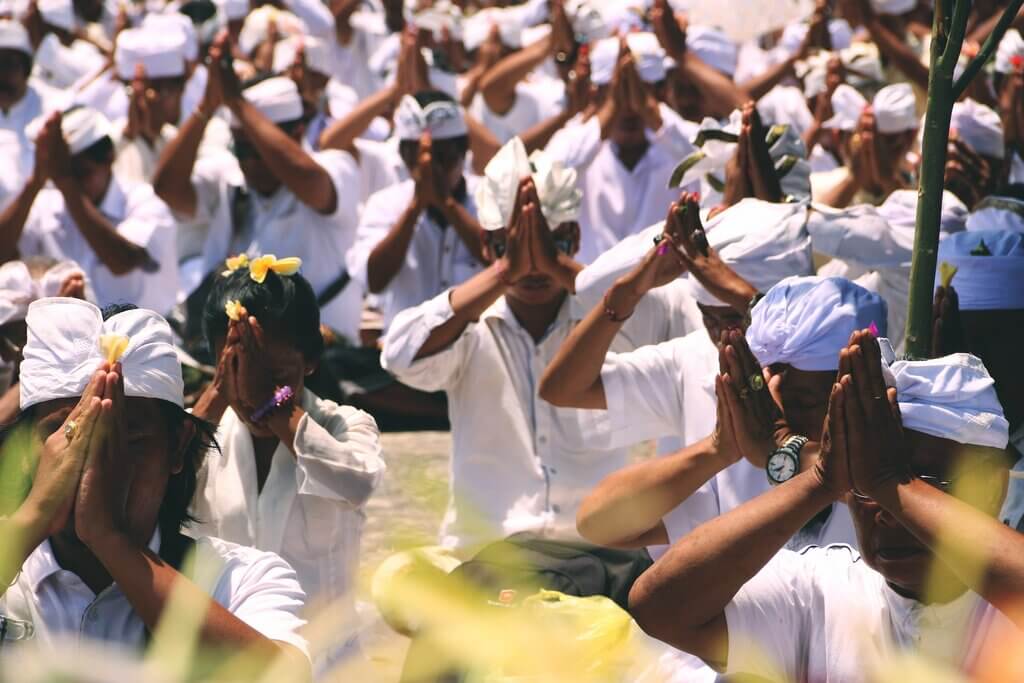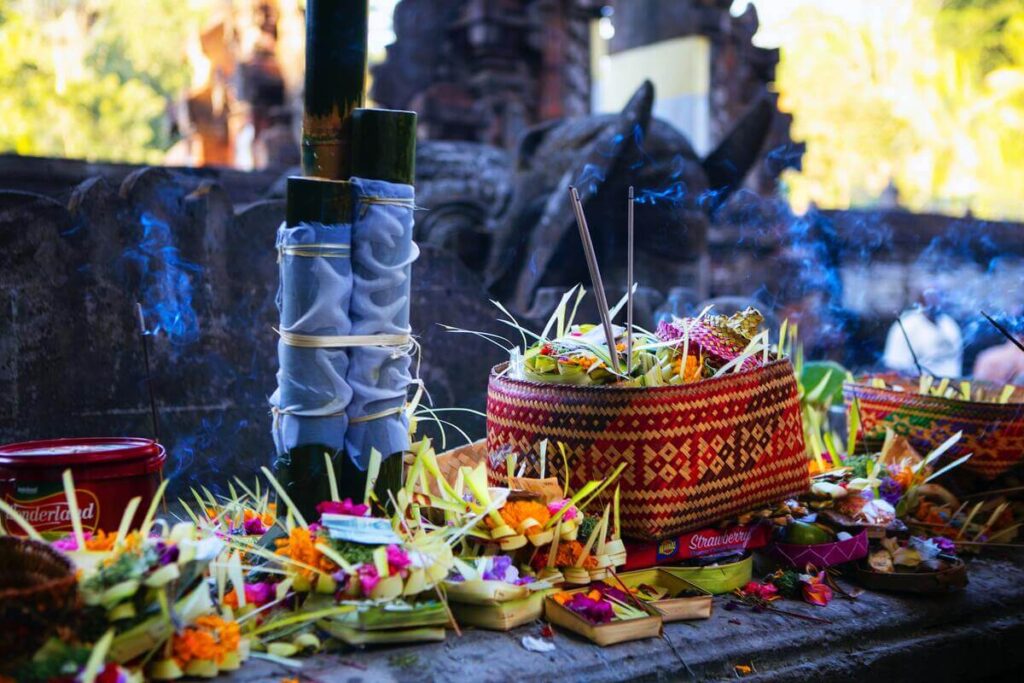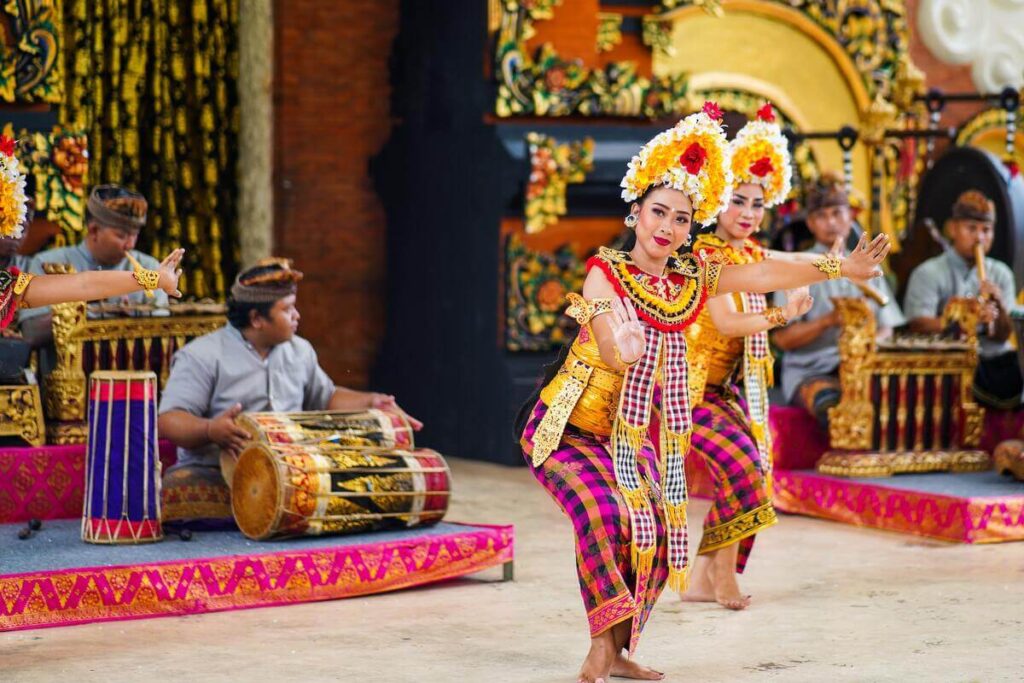1. Respect for hierarchy and authority is essential in Bali
Balinese culture greatly emphasizes respecting elders, authority figures, religious figures, and social hierarchies. To fully embrace the culture, you need to respect the traditional norms and values of the community, even if it may feel uncomfortable at times.
In Bali, people of high status are particularly mindful of their reputation, which is closely tied to their public image. That’s why it’s important to speak respectfully of those in positions of authority and influence. Criticism may be viewed as a sign of disrespect towards the Balinese culture, so it’s best to avoid such situations by refraining from negative comments about public figures. This also counts for other parts of Indonesia.
Valuable insights and practical advice, distilled from years of expertise and real-world experience.


2. Learn the national language (Bahasa Indonesia) and local language (Bahasa Bali)
Indonesia is home to more than 700 unique languages. The official language of the entire Indonesian archipelago is Bahasa Indonesia. Learning the language is highly recommended to show respect for the people and the country.
Bali has its local language as well, called Bahasa Bali. This language differs from Bahasa Indonesia; learning a few words in Balinese is highly recommended.
Besides showing respect for the local culture, speaking Bahasa Indonesia and Bahasa Bali also offers practical benefits. In case of any issues or if you need assistance, locals are more likely to help you if you approach them in the Indonesian language. That especially counts when you come to them in Balinese (even if it’s just a greeting).
Here are some simple Indonesian and Balinese words:
- Thank you – Terimah kasih – Suksema
- You’re welcome – Sama sama – Suksema mewali
- Good morning – Selamat pagi – Rahajeng semeng
- Good afternoon – Selamat sore – Rahajeng sore
- Good night – Selamat malam – Rahajeng malam
3. Balinese perspective on time
Time is a precious commodity in many Western countries, and punctuality is highly valued. Being late for appointments can be seen as a sign of disrespect, but in Bali, time has a different meaning. The Balinese people have a more flexible view of time, and arriving a little later than the appointed time is generally accepted.
In Indonesia, being late is called jam karet, which means ‘elastic time’ in Indonesian. Understand that Balinese people view time differently, and it’s not meant as a sign of disrespect if they’re later than planned. If you make an appointment with a Balinese person, it’s not uncommon for them to arrive a little late, and it’s best not to make an issue of it.
4. Be indirect in communication (and maintain harmony)
Maintaining harmony is essential to Balinese culture, and indirect communication is almost always used to avoid conflict. Balinese people may find it challenging to express their opinions, especially if they think it might upset someone else. Be aware of this, and try to be indirect in your communication.
If you need to point out something wrong to a Balinese person, do so calmly and with a smile. Criticizing them directly may cause them to lose face and harm the relationship. Also, be cautious with jokes, particularly sarcastic ones, as they can be easily misunderstood.
5. Always be respectful towards the Hindu religion in Bali
Indonesia is the biggest Islamic country in the world, although Bali’s main religion is Hinduism. As religion plays a prominent role in the Balinese culture, showing respect towards the religion people follow is essential and highly valued. While it may feel unfair when the culture goes against your norms and values, respecting Balinese norms and values is important.
Religious ceremonies and rituals are integral to Balinese culture and are held daily. Balinese people believe that the gods and goddesses must be appeased with offerings, prayers, and ceremonies to ensure prosperity, health, and happiness.
You show respect by dressing modestly, avoiding public displays of affection, and being mindful of your behavior at religious sites, such as temples and holy vulcanos (Gunung Batur and Gunung Agung, for example).

6. Be aware of religious festivals and days in Bali
The Balinese culture knows several religious festivals and days you should know when living in Bali. The most important festivals in Bali are Galungan and Kuningan, celebrated twice yearly, every 210 days. Both celebrations remember the victory of good over evil. Galungan is celebrated for ten days. Kuningan will be celebrated on the last day of Galungan.
Another important day is Nyepi, the Balinese New Year. Nyepi is celebrated with silence, fasting, and meditation. The island of Bali comes to a complete standstill, and nobody is allowed to be in the streets. This means you have to stay at home during Nyepi. When evening falls, you cannot turn on any lighting at home. People who don’t follow the rules risk being arrested.
8. Know about Canang Sari
Canang Sari is the daily offering the Balinese people make to the God of Balinese Hinduism, Sang Hyang Widhi Wasa. You will find these offerings everywhere you go in Bali: in the temple, on the sidewalk, in front of your accommodation, and on the streets. The local people put a lot of time and effort into making and placing these offerings, which consist of small palm-leaf baskets that hold plants, flowers, food, or even cigarettes and burning incense.
It is important to be respectful towards the Balinese people’s offerings. Don’t touch the offerings, and don’t throw them away. Also, avoid driving over the offerings with your scooter or motorbike.

Do’s and don’ts in Bali
Respect plays a crucial role in Balinese culture. All traditions, norms, values, and habits revolve around respect. When you go to Bali as a foreigner, it’s important to know the following do’s and don’ts in Bali:
- Balinese and Indonesian people call foreigners bule in their local language, which is not meant negatively.
- People of the same gender holding hands is a sign of friendship and has nothing to do with sexual preference.
- Refrain from interrupting Balinese people when they are talking. They will never do this themselves.
- Most Indonesians have little sense of personal space. There is even no word for ‘privacy’ in the Indonesian language. Be aware that this is a cultural thing.
- Wherever you go, always wear clothing and cover your shoulders. Dress modestly when you are visiting a religious site. Remove your shoes when entering a temple.
- Always greet people with a smile and a nod.
- Bargaining is common, and it’s acceptable to negotiate the price of goods in Bali.
- Don’t be aggressive, but always stay polite and keep smiling.
- Never touch someone’s head, as the head is considered the most sacred part of the body in the Balinese culture.
- Do not make fun of the Balinese customs and traditions.
- Don’t use drugs in Bali, as it’s highly illegal and can even be punished with the death penalty.
Valuable insights and practical advice, distilled from years of expertise and real-world experience.


Frequently Asked Questions (FAQs)
What does Balinese culture value?
The Balinese culture values a harmonious relationship with God, people, and nature, which means you always have to show respect to others around you.
What are the do’s and don’ts in Bali?
The most important do’s in Bali are always to show respect towards other people, smile and nod as a greeting, dress modestly, keep harmony, and communicate indirectly. The most important don’ts in Bali are never to be aggressive, don’t do drugs, and not make fun of the local culture or religion.
What is the belief in Bali?
Hinduism is the biggest religion in Bali, and more than 87% of the island’s population follows the Hindu belief.



